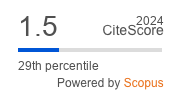Universal Participatory Design: Achievements and Challenges
DOI:
https://doi.org/10.5753/jis.2019.714Abstract
According to the principles of participatory design, a genuine democratic process requires effective participation of all affected people in the design process; this must include affected disabled users. However, user participation entails complex problems, which are aggravated by conditions of illiteracy and/or aging. This article presents the concept of Universal Participatory Design, a design philosophy and practice that aims to be inclusive during the design process, and which has a positive result for all. We first conducted a review of the literature to understand the limits of the relationships between participatory design and universal design. This paper then addresses some of the challenges to achieve Universal Participatory Design (UPD) by juxtaposing deficits observed in the literature with issues we experienced during two research projects. We discuss the key components of Participatory Design and its relationship to UPD, and establish a research agenda that aims to conceptualize and investigate participatory design with universal access. Our findings indicate the need for flexible design methods, adaptable artifacts, and positive designers’ attitudes when encountering unexpected situations.Downloads
Download data is not yet available.
Downloads
Published
2019-12-13
How to Cite
BONACIN, R.; DOS REIS, J. C.; BARANAUSKAS, M. C. C. Universal Participatory Design: Achievements and Challenges. Journal on Interactive Systems, Porto Alegre, RS, v. 10, n. 1, 2019. DOI: 10.5753/jis.2019.714. Disponível em: https://journals-sol.sbc.org.br/index.php/jis/article/view/714. Acesso em: 20 feb. 2026.
Issue
Section
Regular Paper
License
JIS is free of charge for authors and readers, and all papers published by JIS follow the Creative Commons Attribution 4.0 International (CC BY 4.0) license.








